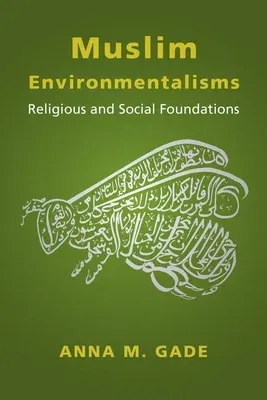How might understandings of environmentalism and the environmental
humanities shift by incorporating Islamic perspectives? In this book,
Anna M. Gade explores the religious and cultural foundations of Islamic
environmentalisms. She blends textual and ethnographic study to offer a
comprehensive and interdisciplinary account of the legal, ethical,
social, and empirical principles underlying Muslim commitments to the
earth.
Muslim Environmentalisms shows how diverse Muslim communities and
schools of thought have addressed ecological questions for the sake of
this world and the world to come. Gade draws on a rich spectrum of
materials―scripture, jurisprudence, science, art, and social and
political engagement―as well as fieldwork in Indonesia and Southeast
Asia. The book brings together case studies in disaster management,
educational programs, international development, conservation projects,
religious ritual and performance, and Islamic law to rethink key
theories. Gade shows that the Islamic tradition leads us to see the
environment as an ethical idea, moving beyond the established frameworks
of both nature and crisis. Muslim Environmentalisms models novel
approaches to the study of religion and environment from a humanistic
perspective, reinterpreting issues at the intersection of numerous
academic disciplines to propose a postcolonial and global understanding
of environment in terms of consequential relations.

